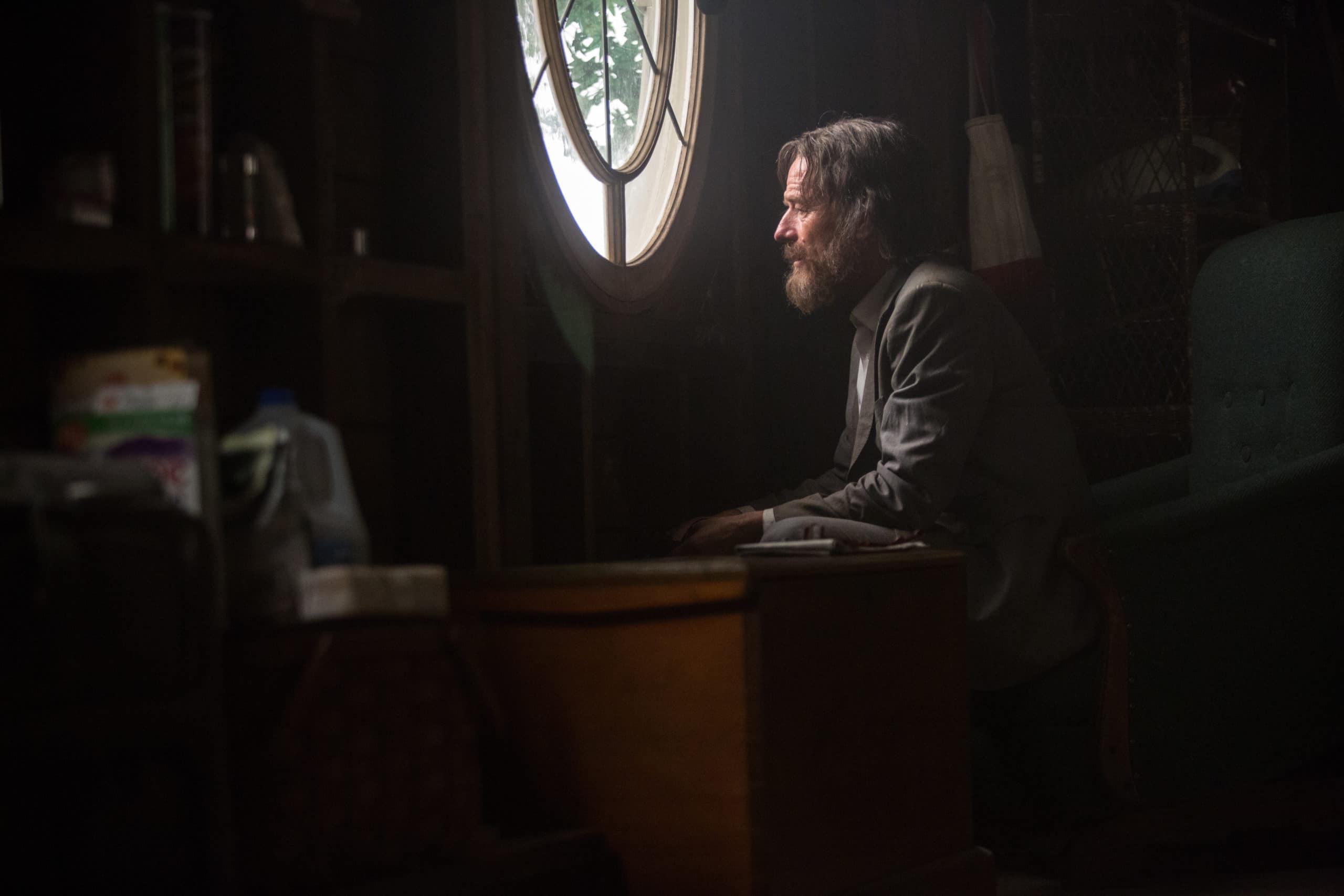Sometimes we just need to step out of the river of our lives and watch it from the banks to gain greater perspective.
This is exactly what well-to-do lawyer Howard Wakefield (Brian Cranston) does when he returns to his suburban home from work one night. Instead of walking in and embracing his lovely wife and twin daughters, he decides to clandestinely observe his domestic tribe through the small upper window of a two-story storage shed.
One night of going AWOL stretches into the winter and beyond.
With his family unaware of his whereabouts, Wakefield camps out in his dusty domicile and observes the goings and comings of his family, reflecting on his life and relationships, as his family moves on from his absence.
A father deliberately abandoning his family while monitoring them from several paces certainly seems perverse, but director Robin Swicord maintains an overall tone of levity and humour with elegiac accents that relax our scruples and draw us into Wakefield’s character.
Cranston’s performance reinforces his status as a primo thespian. His ability to compellingly convey any emotion with the most subtle facial tweak or shift in tone is best exemplified in a flashback scene where he jealously prowls around his wife who’s flirtatiously chatting with another man at a backyard party.
His voiceovers wonderfully capture the keen energy of the film’s namesake source material, a short story by E.L. Doctorow.
However, around the middle of the second act the film begins to sputter. At this point Wakefield has gone full castaway. He rocks a hefty beard and survives on suburban refuse. He even finds himself running from Russian scavengers, a chase sequence that fits in awkwardly with the rest of the film.
After guileless neighbours from a group home discover him and offer him aid in winter his philosophical enlightenment begins. He rhapsodizes about the virtue of mercy and hits on an epiphany about himself that feels somewhat forced and doesn’t shine as much light on his character, motivation and thoughts about returning as the script thinks it does.
At this point, you’re more interested in seeing if and when he reveals himself to his family, and much of the existential insights feel like filler until the anticipated reveal.
Wakefield is about an interesting man who does a very odd thing. And for much of the first half of the film that premise holds us. Despite its sagging middle and conclusion, Cranston’s performance on its own is worth stepping out of the river of our lives for a couple of hours to watch him watch his life.
—









